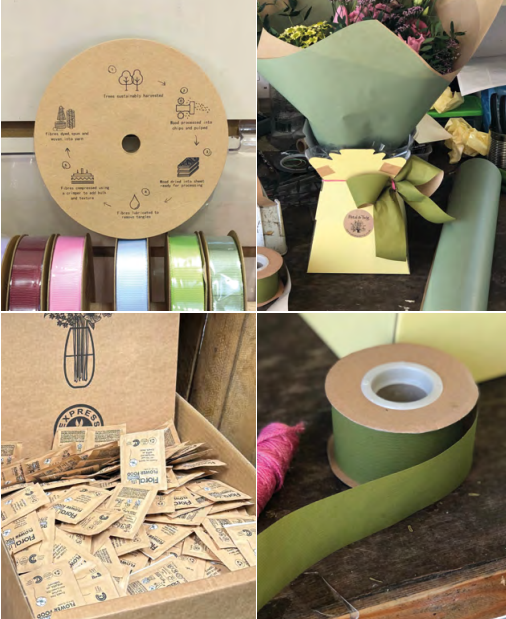Tackling Plastics, Packaging & Waste in Floristry
- Jackie Whittaker

- Nov 6, 2024
- 2 min read
Updated: Nov 22, 2024

We all want to work more sustainably, but in an industry that uses a lot of plastic, it can be hard to know where and how to make a difference. But, thanks to a multi-disciplinary working group, guidance is now available, with the publication of a new e-booklet titled Plastics, Packaging & Waste in Floriculture.
This valuable reference guide is the first output from an industry-wide project set up jointly by Professor David Bek from Coventry University and Dr Jill Timms from the University of Surrey, founders of the Sustainable Flowers Research Project. Together with representatives from across floriculture and floristry, they are working to tackle key sustainability challenges in the industry.

The Plastics, Packaging & Waste in Floriculture guide has been created to help florists, retailers, wholesalers and anyone who buys, sells or arranges flowers become more aware of the issues surrounding plastics, packaging and waste and make better choices. It brings together information on plastics and other packaging materials found in floristry, clarifies some of the terminology around plastics and their disposal, and suggests links to further resources for users to dig deeper into the issues.
The content of the booklet was coordinated by Dr Angela Coulton (a florist-grower) in collaboration with the wider working group, and with guidance from plastics, packaging and sustainability experts from Coventry and Surrey universities.
As we’re all aware, the cut flower industry uses a lot of packaging. Between grower and the final delivery of a bouquet, flowers may be packaged several times. Plastic sleeves, containers, gift wrapping, ribbons and floral foam are all widely used by florists, to protect and enhance their product and keep flowers hydrated.

Single use packaging, and plastic waste in particular, has become a huge environmental concern. Consumers are increasingly conscious of environmental issues and want to buy from businesses that are acting responsibly. Research has shown that packaging is one of the top issues that concern consumers when buying flowers. Tackling waste is one of the most important ways businesses can begin to address their environmental impact, and it makes good business sense to look for ways to reduce waste and improve efficiency.
Download your free copy of the Plastics, Packaging & Waste in Floriculture here and start making a difference. Feedback from florists is always welcome, so if you have comments or queries on this guidance booklet you can email the team at info@sustainableflowersresearch.org
The Sustainable Flowers Research Project aims to transform the industry by encouraging and promoting sustainable practices, offering practical guidelines for reducing environmental impacts, such as minimising the use of single-use plastics and improving packaging efficiency. You can find out more here as well as following the project on Instagram and LinkedIn.










